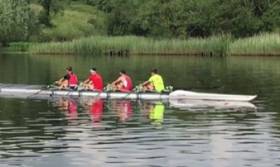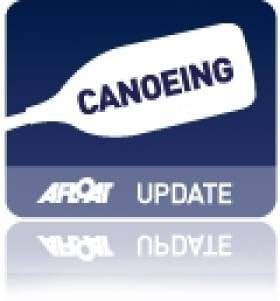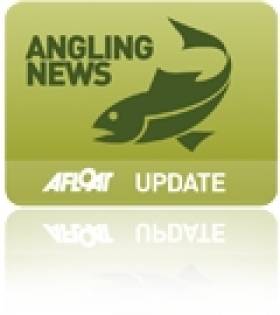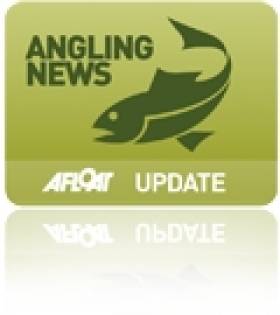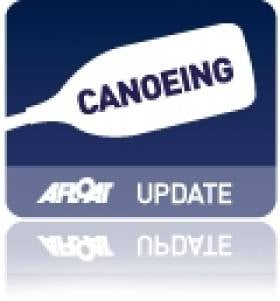Displaying items by tag: qualifiers
Good Results for Irish Rowers at Henley Qualifiers
#Rowing: A good selection of Irish crews made it through the Qualifiers for Henley Royal Regatta on Friday – a number of them in the difficult ‘open’ events.
In the Hambleden Pairs – an open event – Natalie Long of Skibbereen and Sadhbh O’Connor of NUIG came through, as did Orla Hayes in the Princess Royal Cup, the open category in women’s single sculls.
Enniskillen’s boys’ quadruple made in through in the Fawley, and their girls’ quadruple matched them in the Diamond Jubillee.
The UCD women’s eight did not make it through in the Remenham, an open event, but Nathan Hull of Queen’s and Ollie Dix of Leander qualified in the Double Sculls.
Henley Royal Regatta, Qualifiers, Friday (Irish interest)
Remenham Cup (Women’s Eights, Open): UCD did not qualify
Prince of Wales (Men’s Quadruple, Club and University): Lagan Scullers’ did not qualify
Fawley (Men’s Quadruple, Junior): Enniskillen Royal Boat Club Qualified
Diamond Jubilee Cup (Women’s Quadruple, Junior): Enniskillen Royal Boat Club Qualified
Britannia (Men’s Fours, coxed, Club): Belfast Rowing Club did not qualify
Hambleden Pairs (Women’s Pairs, Open): Sadhbh O’Connor and Natalie Long (NUIG and Skibbereen) Qualified
Double Sculls (Men’s Double, Open): Nathan Hull and OJ Dix (Queen’s, Belfast and Leander) Qualified
Princess Royal (Women’s Single, Open): Orla Hayes (Skibbereen) Qualified
Egan Sets Sights on Olympic Canoeing Spot
#CANOEING - The Evening Herald reports that top Irish canoeist Jenny Egan is headed to Florida for a few months of training towards a spot at the 2012 Olympics.
A sprint and marathon racer, Egan was named as The Irish Times/Irish Sport Council's Sportswoman of the Month for May 2010 in recognition of some very impressive performances.
Indeed, the Kildare native enjoyed much success in 2012, with second place in the 5000m at the World Sprint Cup in the Czech Republic and a new Irish record in the 500m at the Canoe Slalom Worlds in Hungary among her achievements.
Heading into 2012, the Salmon Leap club member will surely be shrugging off setbacks like her crash in the heat and humidity of Singapore at the Canoe Marathon Worlds last October.
The new year brings a new focus, as Egan will concentrate on the 500m and 200m K1 sprint distances for the London games, with the final qualifiers - for just 15 spots - taking place in Poland in April.
The Evening Herald has more on the story HERE.
Carlow CAC Receives Bursary for Disabled Angling Efforts
#ANGLING - Carlow Coarse Angling Club chair Gerry McStraw was presented last week with a special bursary by Carlow Sports Partnership for the club's efforts in helping disabled anglers to participate in the sport.
According to the Enniscorthy Guardian, McStraw was joined by Carlow CAC PR officer Ian Warburton and treasurer George Quinlan in receiving the money from Carlow Sports Partnership chair Tracey Byrne and Carlow County Council's Thomas Kinsella.
McStraw was recently highlighted on Afloat.ie for his spearheading of the revival of coarse fishing in Ireland.
The bursary will be used to buy equipment essential to running more coarse angling programmes in 2012.
Carlow CAC will also host three of the six weekends for the National Coarse Fishing Federation of Ireland's qualifiers next spring and summer.
Dates Announced for Coarse Fishing Qualifiers in 2012
#ANGLING - Qualifiers to select teams for the 2013 World, European and Celtic Cup coarse fishing teams will be fished over six weekends in 2012.
The float and feeder teams for the National Coarse Fishing Federation of Ireland (NCFFI) squads will be decided via an All Ireland Qualifier format to CIPS rules.
Team manager Mark Theedom will select his teams from the top 20 anglers in the float qualifiers and the top 50% of anglers taking part in the feeder qualifiers.
The series will be open to all anglers who are members of NCFFI-affiliated clubs, and is intended to be more inclusive and encourage many more anglers to participate.
All senior anglers will pay an entry fee of €60 for the six-match series which will help fund teams travelling to the 2013 championships. Individual anglers not intending to fish the series but wishing to fish individual qualifiers in their local area will be charged €15. Juniors will not be expected to pay any entry fee.
The qualifier weekends are as follows:
- 21-22 April – River Barrow, Co Carlow
- 19-20 May – Inniscarra, Co Cork
- 2-3 June – River Shannon (O’Brien’s Bridge), Co Clare
- 11-12 August – Lough Muckno, Co Monaghan
- 22-23 September - Lough Oughter, Co Cavan
- 20-21 October – Lower River Bann, Co Antrim
Rheinisch Back in the Paddle
Olympic kayaker Eoin Rheinisch was back in canoe action in Spain recently for the first time after a shoulder operation last year.
The Irish Times reports that Rheinisch, who had surgery on his left shoulder last November, placed 34th in the canoe slalom European Championships at Seu d’Urgell.
The Kildare native confirmed that his fitness has not fully returned, but is getting better "day by day".
"The real goal is to get the high-intensity fitness back,” he said.
Rheinisch has four more events on the calendar before the World Championships and Olympic qualifiers in Slovakia this September.


























